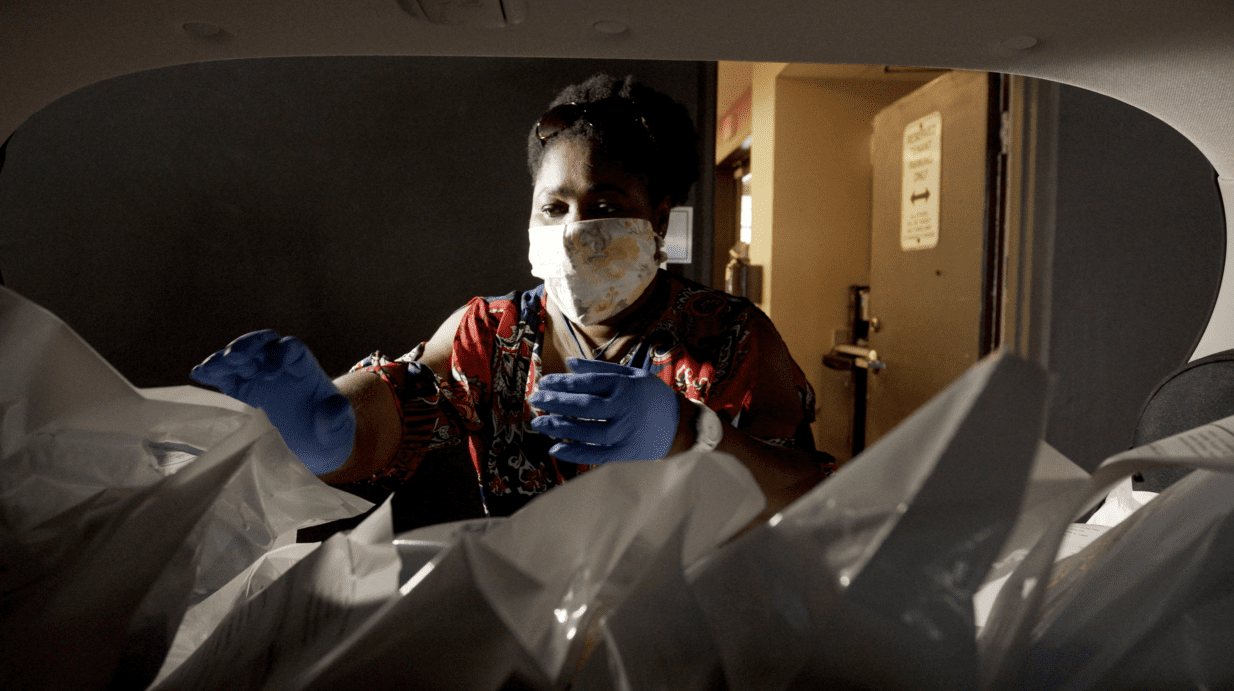
Blog
4 ways nonprofits can take action to reform seniors’ care and the care sector
COVID-19 laid bare what we in the nonprofit sector already knew about the undervaluing of vulnerable people’s lives and well-being in Ontario, including in long-term care (LTC) homes. Ill-prepared for a pandemic, 497 out of 626 homes experienced COVID-19 outbreaks and 3,776 seniors died (at the time of writing). How can we prevent another catastrophe like the one we saw in Ontario LTC this past year?
4 actions human service nonprofits can take to create change:
- Commit to providing and advocating for decent work and high-quality care: Our sector should not accept complacency and inadequate care models. Bold leadership is required in service delivery and in advocacy for high-quality, “decent work” care service models that both raise the floor for the workforce and expand it.
- Center people and families: Insist on person-centered care service design in local communities – a spectrum of responsive options that involve individual and family preferences, rather than an institutional one-size-fits-all. In all sectors, we see a growing demand for culturally appropriate care and specialized homes for people with different cultural traditions, diets, and languages spoken. Don’t we all want to live in the place we call home with the people and things that we love, in communities where we look out for one another, doing the things that matter to us?
- Insist that profit be taken out of care. Care should not be subjected to profit-taking, and care homes must not be sold to the highest bidder. The nonprofit (including nonprofit co-operatives) and municipal service providers can deliver value for money with a focus on quality services, not dividends.
- Help end the financialization of care infrastructure. Big investment companies should not own community assets and be allowed to extract profitable returns for shareholders or pensioners at the expense of individuals needing care.
ONN is focused on promoting a “Decent work movement” in the nonprofit sector, with a new emphasis on racial justice and learning from Indigenous approaches to decent work.
Time to reform seniors’ care
After the virus roared through LTC facilities in both the first and second waves with devastating consequences, the Ontario government struck a commission to examine what went wrong and make recommendations for reform. The Ontario Long-Term Care COVID-19 Commission’s mandate was narrowly designed to focus on the response to this pandemic rather than address the longstanding structural issues in the LTC sector.
The Commission heard from those directly involved in long-term care, as well as government officials and independent experts. Working in the spotlight of intense media and public interest, the Commission produced its Final Report on April 30, 2021.
Many of the Commission’s recommendations have relevance for the nonprofit sector and the opportunity that awaits us to participate in reforming seniors’ care and other parts of the care economy that have suffered from neglect. Especially since, seniors’ care and more broadly the care economy is poised to grow exponentially, as Ontarians’ need for care increases and because it is least likely to get disrupted by technology in the future of work. Technology will not take over care jobs, but rather assist in doing the work.
As governments and other key stakeholders grapple with “building back better” plans and mitigating the impact of technological disruption in the future of work with labour force and skills development strategies, there is an opportunity for nonprofits not only to capture that growth in our sector, but also demand that growth consists of decent work jobs and a service design that is people and community centered.
The Commission found themselves agnostic about the corporate type of care (nonprofit vs. for-profit) noting the important attribute was commitment to “mission” (p. 13). Our sector is focused exclusively on ”mission” but over the years the sector has worked alongside the for-profit sector and adopted many of their practices such as part-time staffing and inadequate wages (albeit slightly better than the for-profit).
When COVID-19 hit, nonprofit homes in the sector fared better than the for-profit homes as the former had better wages and staffing levels, more supplies for residents and upgraded older homes. Instead of just doing “better” than the for-profits, with more leadership and advocacy could the nonprofit sector have had greater impact on service design and quality?
The Commission concluded that Ontario’s LTC model required a system change. “This will require a philosophy of care that is anchored in respect, compassion and kindness for the people who live and work in long-term care. It is not just about building more homes. There needs to be a transformation to a person-centered care model, which motivates different behaviours and rewards innovation that leads to better outcomes for residents and staff,” (p. 24).
“Not one of these long-standing issues was a surprise to the government or to those who have worked, lived or advocated in the long-term care sector,” (Final Report, p. 14). Because of leadership failures from the Ontario government and beyond, many seniors lost their lives during the pandemic and even more continue to suffer. There is an opportunity for nonprofits serving seniors to show the impact of leaders who put people before profit.
With all eyes on the care economy, now is the time for nonprofits to insist that high-quality care and decent work are at the heart of person and family centered services.






